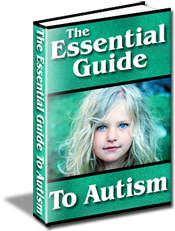Emotional responses to faces in autism syndrome
Click Here To Know The Simple Methods To Effectively Spot The 31 Signs of Autism
Autism has been thought to be characterized, in part, by dysfunction in emotional and social cognition, but the pathology of the underlying processes and their neural substrates remain poorly understood. Children with autism syndrome made abnormal social judgments regarding the trustworthiness of faces, however, they are able to make normal social judgments from lexical stimuli, and they have a normal ability to perceptually discriminate the stimuli.
Autistic persons are shy, unresponsive and prefer to be left alone. They avoid emotional and physical contact with other including their parents and may be painfully sensitive to touch, sound, sight or smell. People with autism syndrome have difficulties intensifying and interpreting facial expression.
Functional differences may vary widely like everything else involving the brain. Significant social challenges are created by not responding to familiar or unfamiliar faces. Some people with autism syndrome can intuit emotions from other senses like tone of voice or body gesture.
There are cases of people with autism syndrome, where the big problem may be with the visual perception of faces. Some studies show that an autistic person it is able too perceive facial expression better in caricature from than in real life. The reason for that is that the "a real face" present too much visual information that can be taken in at once than it can present a photograph.
You can help a person with autism syndrome to improve his emotional face recognition either part-to-whole method or by training with caricatures, moving on to exaggerated black and white photographs to the real life.
Although poor face recognition is a common feature of autism, very little is known about the development of face recognition skills in children with autism syndrome, they develop additional capacities to analyze differences in feature arrangements during adolescence and this allows them to make more difficult discriminations between very similar-looking individuals.
If your child is diagnosed with autism syndrome, learn as much as you can about his particular situation and try to identify his strengths and recognize when he's having difficulty. Sometimes troubleshooting problems can be difficulty and your child with autism syndrome may have more difficulty talking to or understanding other children or non-family members.
With a professional, try to figure the major sources of your child's communication difficulties and try to make your home an oasis of love, comfort, and understanding because you are your child's best advocate, and you have a tremendous impact on his future.
More informations about autism causes or about child autism can be found by visiting http://www.autism-info-center.com/
Labels: asperger_autism_challenge_child_functioning_group_high_program_related_skill_skill_social_super_syndrome, autism_christian_contend_good_mistaken_parent_too_too_unkind_wise

